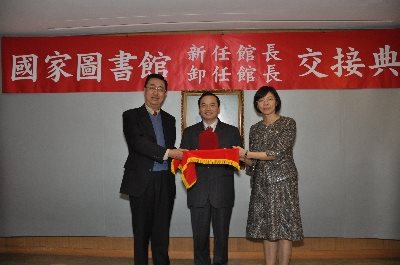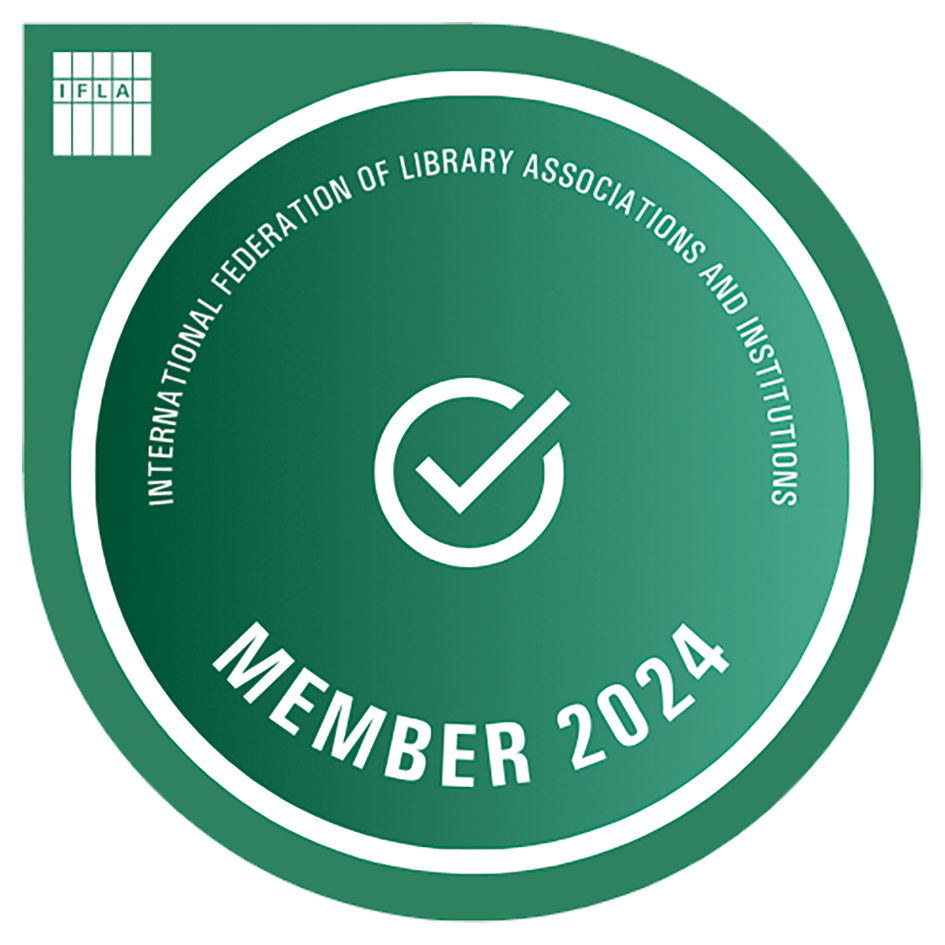News & Events
- 2011-01-01

On the day before the Republic of China turned 100, the National Central Library held ceremony to commemorate the appointment of a new director-general. Ms. Tseng Shu-hsien was appointed to the post following the retirement of the former director-general Karl Min Ku. She is the first female director-general in the 76 years of the library’s existence. Tseng obtained a Ph.D. in library science from National Taiwan University and also took advanced library and information science courses at the University of North Carolina at Chapel Hill. In 1999, she was awarded the “Fourth Annual Important Contribution to National Infrastructure by Government Employee Award” by the Sun Yun-suan Foundation. The Taipei City Library was ISO 9002 certified during her 11-year tenure as director. In 2009 she was awarded “First Government Service Quality Award” by the Executive Yuan. Director-general Tseng expressed in her speech that since the beginning of her involvement in librarianship in the 1980s, she has seen many library professionals silently going about their duties but never getting noticed for it. As such, she often pondered how she could be more involved and accomplish more in the library sector in Taiwan. Her main efforts will be focused on increasing the excellence, professionalism, digital capabilities, international orientation, diversification, and humanization of library management. To this end, she proposed six visions and fourteen strategies that will lead to concrete actions necessary to take the National Central Library on to new milestones. Six Visions 1.Make the National Central Library become an influential force in cultural, social, economic, and technological fields. 2.Improve the service of libraries throughout Taiwan, to become public centers for learning and life, as well as important forces in increasing national competiveness in this knowledge economy age. 3.Utilize the rich Chinese studies resources, materials on Taiwan studies, and Chinese holdings to engage in international exchanges and cooperative projects, to make NCL a key library in the Chinese world. 4.Promote a national initiative to cultivate the practice of reading and encourage the public to develop good reading habits and strong reading competency. 5.Promote the social value of libraries to help the public become acquainted with the capabilities and value of the new era libraries. 6.Promote a revitalization of libraries nationally, including the building of more public libraries, the enrichment of current library holdings and the improvement of service standards. Fourteen Strategies 1.Propose a development plan and related strategies to bring about progress and development in libraries across Taiwan. Development strategies will be co-generated with various types of libraries, library and information science departments, and professional associations. A six-year period will be set for each development stage with its corresponding visions, strategies, projects. These will be implemented via government laws and appropriated budgetary funds. 2.Launch a national reading program, with help from publishers, bookstores, the media, schools, and private groups. Reading competence and public reading interests and habit surveys will be conducted in all counties and cities. Other reading activities will include Oral Reading Day, Reading Day, and Classics Day to improve reading habits of society at large and students’ reading competency. In this way reading will be able to permeate the lives of all people. 3.Improve cooperative relationships between NCL and other world libraries. Assistance will be provided to foreign libraries in procuring and cataloging Chinese materials as a way to widen their use. In addition, different types of libraries in Taiwan will be encouraged to enter into book exchanges and cooperative projects with foreign libraries. 4.Establish professional service standards and guidelines as guidance and goals for various types of libraries to improve the overall level of service of libraries across the board. 5.Establish digital publication and access platform to extend digitalized knowledge services. Also, space for digital library services will be created to allow the public to experience e-reading and future library services. 6.Increase organizational effectiveness, improve service quality, have a vibrant organizational culture, service innovation, professionalism, an improved organizational image, and outstanding knowledge teams. These will allow NCL to give professional leadership and establish its image as one of innovation and progress. 7.Construct a complete library service system and work together with university, public and secondary school libraries. This close-knit service network will enable libraries to promote reading and provide professional service. 8.Establish a national book resource procurement and processing center to assist local libraries with acquisition, procurement, and processing of books and materials from Southeast Asian countries, as well as the production of Braille works, audio and digital materials for visually-impaired readers. These will provide the resources for visually-impaired readers and disadvantaged readers need, as well as that for multicultural service. This will alleviate the discrepancy between urban and rural facilities caused by a shortage of multi-lingual and professionally trained staff. 9.Enrich the holdings of various media types, focusing on localization, globalization, and diversification—providing information, data, and knowledge needed by professional fields in research and creative endeavors, and thus raising our nation’s competitive edge. 10.Increase international promotion of Chinese Studies, cooperation and research so that the CCS will become an important collections, research, and supply center for the Chinese world. 11.Advance knowledge services for government departments to provide these departments with reference information needed for higher quality policy decisions via a personalized and customized service model. 12.Make an effort to build more children and youth libraries, technology libraries, and art libraries by the government to allow national libraries to meet the needs of different groups according to age and interest, as well as increase the professionalism of library services. 13.Institute reading certifications for communities and schools (number of community libraries, amount of holdings, reading population, lending and acquisition conditions, bookstores, school libraries, home libraries) and outstanding libraries. 14.Promote the creation of cloud e-book databases and digital experience spaces.
- Resources
- NEWS & Events
- ABOUT NCL
- International Cooperation and Exchange
- Services






